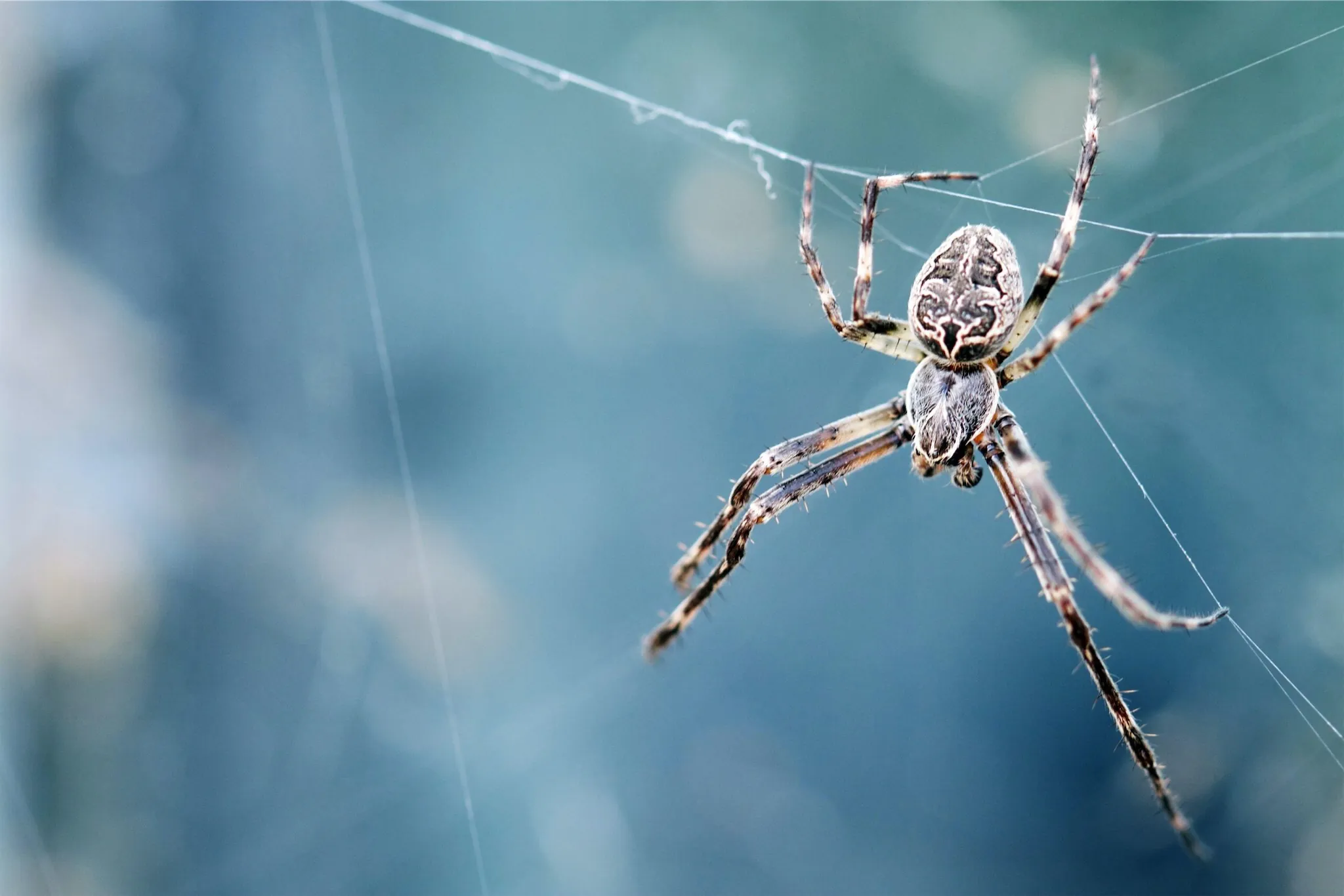Stopping Winter Spider Infestations Before They Happen

There are many reasons a spider can get into your home. Often, it is only by accident. They establish their webs on the outside of your home— or in sheltered locations provided by your landscaping— and stumble upon a hole in your exterior and climb inside.
But winter is a unique time of year for spiders. While spiders can endure the cold because they have a sort of antifreeze that protects them from freezing, their food source is not resistant to the cold. As it gets colder, insects and arthropods die off or go into hiding.
This leaves spiders without anything to eat and it can cause them to be more curious about what may be inside your home, especially if they feel a draft of warm air leak out.
Here are some trouble spots you may have in your home that can allow insects, arthropods, and spiders to invade.
Guide To Keeping Spiders From Invading Your Home
We can’t talk enough about weather stripping. It isn’t just for keeping the nice warm air inside your home. It keeps bugs out.
⭐ If you have damaged weather stripping on any of your doors and a gap has formed, that can be a serious vulnerability. It doesn’t take a large hole to let an ant, silverfish, earwig, millipede, or arachnid into your house.
⭐ As you’re checking out the weather stripping around your doors, check to make sure your doors are seated properly.
⭐ If a door has been taken off the hinges before, it is possible that it has been put back on a little off-center, and this can create gaps. Aligning the door(s) can get rid of those gaps and seal pests out. It will keep your expensive heat from leaking out as well.
⭐ Door frames are notorious locations for moisture to build up. This moisture is attractive to many bugs, and of course, the spiders that love to eat them.
So, what happens quite a bit in homes is that holes develop indoor frames because pests chew on those frames.
It might begin with a tiny bug and escalate all the way to a big rat gnawing on a vulnerable spot.
If you have any holes in your frames, you need to seal them so pests can’t get into your home through this route. High-quality silicone caulk is a good temporary fix if you don’t have the budget right now to do a proper fix.
⭐ The frames around windows can also be a vulnerable location. Like your doors, window voids are high in moisture too.
If you have windows in your foundation wall, they will be more vulnerable to pests than windows that are higher up.
This is because many pests stay close to the ground. Windows on your second and third floor will not usually be an issue at all for most pests, but they can still be an entry point for spiders because spiders can create high webs on a home to capture flying insects, and then accidentally get in.
Why Spiders Love Windows In Disrepair
There are three primary ways a window can be breached. The first is obvious, but harder for pests to use as an entry to get all the way into your home.
Damaged screens can give easy access for spiders and other pests to get in between your screen and your window.
If you open the window, those pests can then come into your home.
The second is like the first. Around your window screen, tiny gaps can form. This can give small spiders and other bugs entry into that “in-between” space.
But that is usually where their journey ends if there isn’t a hole in your window frame to allow them to go further.
The real vulnerability that windows have is actually around the outside frame of windows. When windows are installed, the opening they are installed in is bigger than the window.
This leaves a gap around the window that must be sealed. If this seal is damaged, it can give entry to pests. It can give an entry for water too, so it is a good idea to do routine checks of your window seals.
So What Should I Do About Spiders?
Sealing the gaps, holes, and cracks in your exterior walls and foundation is key to keeping spiders out of your home. If you combine this with a year-round pest control service from a trusted pest control professional, you’ll have the best chance of keeping spider infestations from taking root in your home this winter.
If you live in DC, Maryland, or Northern Virginia, learn about the Preferred Care programs offered by American Pest to keep common house spiders and dangerous spiders from getting into your home in winter, and any other time of the year.
Request Your Pest Control Estimate
Related Posts
Contact Us Today!
Do you need an estimate for service or have questions about pests? We’d love to hear from you!
Fill out the form and receive feedback today. For immediate service, please give us a call!
